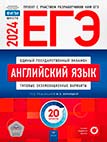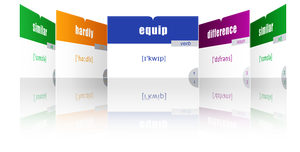Тест №10 по ЕГЭ-2024. Английский язык. ВЕРБИЦКАЯ (Ответ)
- Подробности
- 22086

Прочитайте приведённые ниже тексты. Преобразуйте, если необходимо, слова, напечатанные заглавными буквами в конце строк, обозначенных номерами 19-24, так, чтобы они грамматически соответствовали содержанию текстов. Заполните пропуски полученными словами. Каждый пропуск соответствует отдельному заданию из группы 19-24.
Everyone wants a shiny smile
|
19 |
The perfect smile has created a multi-billion-dollar industry, but not all is shiny in this business. Dentists say that illegal whitening is putting people at risk of health problems, including burnt gums, lips and lost teeth. |
TOOTH |
|
20 |
Statistics show a 26% increase in complaints last year from people with problems from whitening. Many of them used services of unqualified specialists. |
LATE |
Read by Neuralnet
A cold nose
|
21 |
Now we know why a dog’s nose is cold. Scientists have tried / have been trying to solve this mystery for many years. The scientists believe dogs’ noses are cold because dogs sense the temperature of things without touching them. |
TRY |
|
22 |
They use their noses to detect temperature, when prey is nearby. Earlier it was believed that dogs’ noses are cold to control their body temperature. Researchers did experiments on dogs, which had to detect the temperature of different objects. |
BELIEVE |
|
23 |
Brain activity in the dogs showed that they knew which objects were warmer than others. So dogs adjust their behaviour according to the thermal radiation coming from warm bodies. |
KNOW |
|
24 |
A researcher said this would change in the future scientists’ ideas on how animals hunt. Many animals may use heat-sensing abilities to hunt. |
CHANGE |
Read by Neuralnet




 Как правильно изучать английский язык по карточкам (статьи)
Как правильно изучать английский язык по карточкам (статьи)